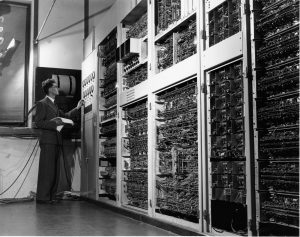The Surprising Truth About Modern Learning Techniques and Strategies
In today’s fast-paced society, education and learning have evolved drastically. With the advent of technology, traditional methods of teaching and learning have been replaced by more modern techniques and strategies. From online classes to e-learning platforms, the way people acquire knowledge has completely changed. However, are these modern learning techniques and strategies really effective? Are we truly learning and retaining information as well as we think? The answer may surprise you.
The Rise of Modern Learning Techniques
In recent years, we have seen a significant shift towards modern learning techniques and strategies. These include online courses, virtual classrooms, and interactive learning tools. The convenience and accessibility of these methods have made them popular among students of all ages, especially in the wake of the COVID-19 pandemic. With just a few clicks, one can access a wealth of information and resources, making it easier and more efficient to learn.
Moreover, modern learning techniques often incorporate multimedia elements, such as videos, images, and interactive games, which are known to enhance the learning experience. These techniques focus on engaging the learner and providing a more hands-on approach to learning, rather than the traditional lecture-style teaching. As a result, students are more actively involved in the learning process and are more likely to absorb and retain information.
The Downside of Modern Learning Techniques
While modern learning techniques have undeniably revolutionized the way we learn, they do come with their own set of drawbacks. One of the main concerns raised by critics is the lack of face-to-face interaction between students and teachers. This can hinder the development of critical social skills and make it difficult for students to receive personal attention and feedback from their teachers.
Another issue is the reliance on technology. With most modern learning techniques being computer-based, technical problems and glitches can disrupt the learning process. This is especially problematic for students who do not have access to reliable internet or adequate devices. Furthermore, studies have shown that excessive screen time can have negative effects on one’s mental health and academic performance.
Are We Really Learning and Retaining Information?
Despite the benefits and downsides of modern learning techniques, one question still remains – are we truly learning and retaining information as well as we think? The short answer is, it depends.
On one hand, the accessibility and interactive nature of modern learning methods can enhance the learning experience and make it more enjoyable. However, it is also important to acknowledge that these methods may not suit everyone’s learning style. For some students, the traditional classroom setting may still be the most effective way to learn. Additionally, the internet is flooded with vast amounts of information, making it difficult to differentiate between reliable sources and inaccurate information.
Moreover, digital distractions can also hinder one’s ability to concentrate and retain information. With notifications and endless scrolling, it is easy to lose focus and move on to something else, leading to shallow learning and forgetting information quickly.
The Importance of Finding a Balance
As with most things in life, finding a balance is key. While modern learning techniques have their advantages, it is crucial to not completely disregard traditional methods. Combining both approaches can provide a more well-rounded and effective learning experience. Additionally, finding the right balance between screen time and offline activities is essential for one’s overall well-being and academic success.
In conclusion, the rise of modern learning techniques and strategies may have its pitfalls, but it also offers numerous benefits. However, it is important to carefully evaluate and find a balance between traditional and modern methods to ensure effective learning and retention of information. After all, the true measure of learning lies not in the method but in the knowledge and skills gained.











